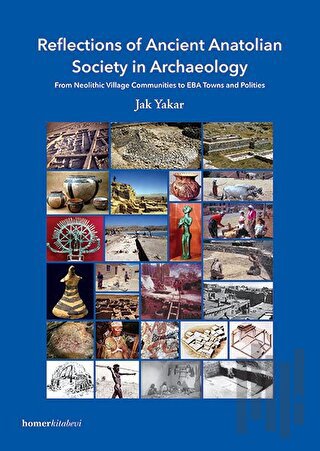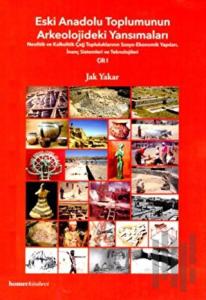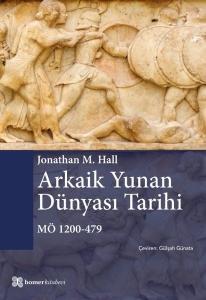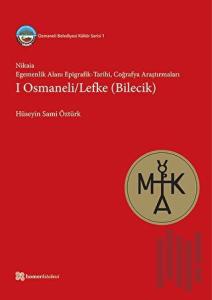
Jak Yakar studied Archaeology, Near Eastern Civilizations and Prehistory at Istanbul University between 1960 and 1965. He pursued his graduate studies at Brandeis University in Massachussets on a Wien Scholarship grant, receiving a PhD in Mediterranean Studies in 1968. Following compulsory army service, in 1970 he accepted Tel Aviv University's offer to establish the Ancient Anatolian Civilizations section in the Department of Archaeology. After working with the late B.U. Alkım on the Samsun Archaeological Project from 1972 to 1975, he concentrated on ethno-arcaological studies, conducting research mostly in the northern, eastern, and southeastern provinces of Turkey. This book provides students of Anatolian archaeology with a revised and detailed assessment of cultural, social, economic, political, and industrial evolution in prehistoric and preliterate Anatolia. The six principal cultural periods, as discussed in Chapters 2 to 7, constitute a time span extending third millennium BC. Chapter 1 begins with a short description of the early Holocene landscape, climate, flora, and fauna and briefly touches on the Paleolithic and Epipaleolithic ancestry of Neolithic Anatolian society, while also highlighting some of the difficulties encountered in investigating and reconstructing the lives of Anatolian hunter-gatherers and agro-pastoralists, especially their subsistene modes and economic organization, social strusture, and spiritual life. Among the topics covered are ethnographic analogies in prehistoric archaeology; dynamics of culture shange and sultural transmission; use of culturel terminologies; and the chronology of incipience, primacay, and socio-economiç complewity. Moreover, this book tries to recorstruct the nature of prehistoric religions and aspects of ritual and spiritual life. To this end, the author relies on an ethno-archaeological approach in order to illustrate the manifestations of spiritual beliefs in the material culture of totemic and shamanic societies. Additional topics discussed include: socio-economic dimensions of farming in Neolithic Anatolia; Anatolia's involvement in the adoption of farming in Southeast Europe; Neolithic migrations and their socio-economic and cultural dimensions; the persistence of shamanism among the Neolithic farmers of Anatolia; and the urbanization process and formation of city-states.
Jak Yakar studied Archaeology, Near Eastern Civilizations and Prehistory at Istanbul University between 1960 and 1965. He pursued his graduate studies at Brandeis University in Massachussets on a Wien Scholarship grant, receiving a PhD in Mediterranean Studies in 1968. Following compulsory army service, in 1970 he accepted Tel Aviv University's offer to establish the Ancient Anatolian Civilizations section in the Department of Archaeology. After working with the late B.U. Alkım on the Samsun Archaeological Project from 1972 to 1975, he concentrated on ethno-arcaological studies, conducting research mostly in the northern, eastern, and southeastern provinces of Turkey. This book provides students of Anatolian archaeology with a revised and detailed assessment of cultural, social, economic, political, and industrial evolution in prehistoric and preliterate Anatolia. The six principal cultural periods, as discussed in Chapters 2 to 7, constitute a time span extending third millennium BC. Chapter 1 begins with a short description of the early Holocene landscape, climate, flora, and fauna and briefly touches on the Paleolithic and Epipaleolithic ancestry of Neolithic Anatolian society, while also highlighting some of the difficulties encountered in investigating and reconstructing the lives of Anatolian hunter-gatherers and agro-pastoralists, especially their subsistene modes and economic organization, social strusture, and spiritual life. Among the topics covered are ethnographic analogies in prehistoric archaeology; dynamics of culture shange and sultural transmission; use of culturel terminologies; and the chronology of incipience, primacay, and socio-economiç complewity. Moreover, this book tries to recorstruct the nature of prehistoric religions and aspects of ritual and spiritual life. To this end, the author relies on an ethno-archaeological approach in order to illustrate the manifestations of spiritual beliefs in the material culture of totemic and shamanic societies. Additional topics discussed include: socio-economic dimensions of farming in Neolithic Anatolia; Anatolia's involvement in the adoption of farming in Southeast Europe; Neolithic migrations and their socio-economic and cultural dimensions; the persistence of shamanism among the Neolithic farmers of Anatolia; and the urbanization process and formation of city-states.
| Taksit Sayısı | Taksit tutarı | Genel Toplam |
|---|---|---|
| Tek Çekim | 2.250,00 | 2.250,00 |













